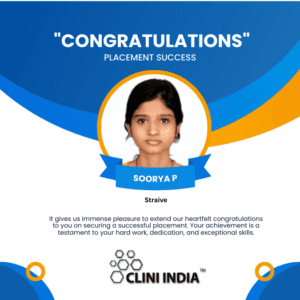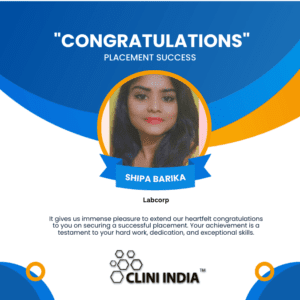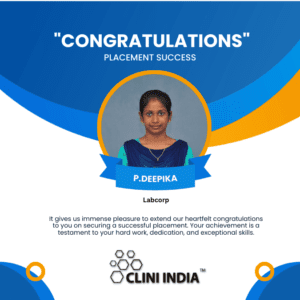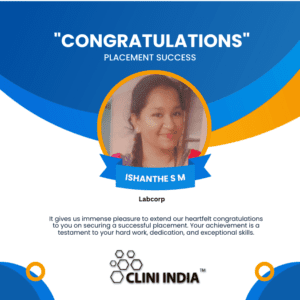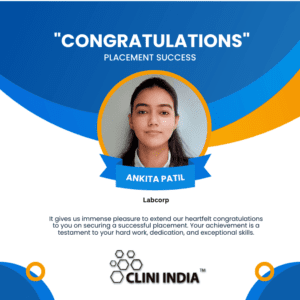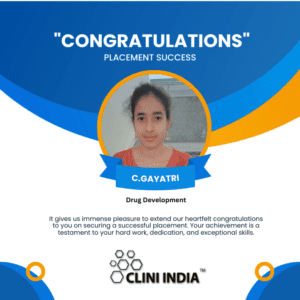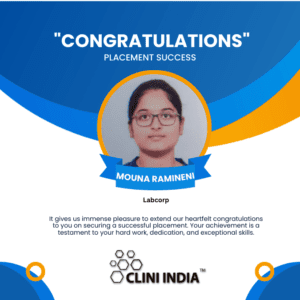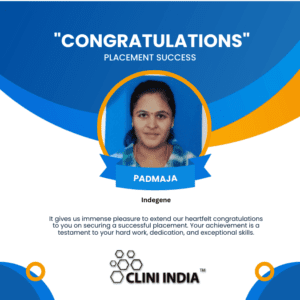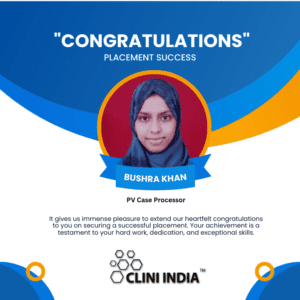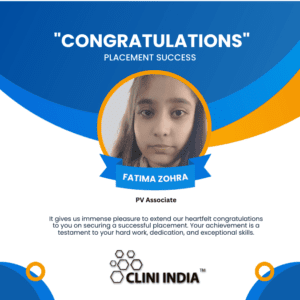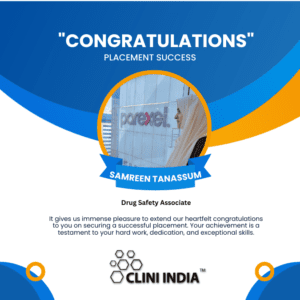- What is a drug?
- A drug is a substance that is used to diagnose, treat, cure, or prevent diseases or to alleviate symptoms. It can be a chemical compound, biological substance, or a combination thereof.
- What is a dosage form?
- A dosage form is the physical form in which a drug is administered to a patient, such as tablets, capsules, syrups, injections, or creams. It determines the route of administration and the rate at which the drug is absorbed and distributed in the body.
- Difference between drug and dosage form?
- A drug refers to the active pharmaceutical ingredient (API) or the therapeutic substance, while a dosage form refers to the specific physical form or formulation in which the drug is prepared for administration to the patient.
- Importance of Drug Discovery and Development?
- Drug discovery and development are crucial processes in the pharmaceutical industry as they lead to the identification, synthesis, and testing of new drugs for therapeutic use. This process is essential for addressing unmet medical needs, improving patient outcomes, and advancing medical science.
- Methods of Drug Discovery and Development?
- Methods of drug discovery and development include target identification, lead compound identification, preclinical testing, clinical trials, formulation development, regulatory approval, and post-market surveillance.
- Pre-Clinical Trials in Detail?
- Pre-clinical trials involve laboratory testing of potential drug candidates to assess their safety, efficacy, and pharmacological properties before they are tested in humans. This includes in vitro studies, animal testing, and toxicology studies to evaluate the drug’s effects on biological systems.
- What is IND?
- IND stands for Investigational New Drug, which is a regulatory submission to the FDA (or relevant regulatory authority) that provides information on a new drug candidate and proposes plans for clinical trials in humans.
- Clinical Trials 4 phases in detail?
- Clinical trials consist of four phases:
- Phase I: Assess safety and dosage in a small group of healthy volunteers.
- Phase II: Evaluate efficacy and safety in a larger group of patients with the target condition.
- Phase III: Confirm efficacy and monitor adverse effects in a larger and more diverse patient population.
- Phase IV: Post-marketing surveillance to monitor the drug’s safety and effectiveness in real-world use.
- Clinical trials consist of four phases:
- What is NDA?
- NDA stands for New Drug Application, which is a regulatory submission to the FDA (or relevant regulatory authority) seeking approval to market a new drug in the United States.
- What is ANDA?
- ANDA stands for Abbreviated New Drug Application, which is a regulatory submission to the FDA for the approval of generic drugs based on bioequivalence studies compared to a reference listed drug.
- Definition of GCP?
- GCP stands for Good Clinical Practice, which is an international ethical and scientific quality standard for the design, conduct, recording, and reporting of clinical trials involving human subjects.
- Evolution of GCP?
- GCP has evolved over time in response to ethical concerns, scientific advancements, and regulatory requirements, leading to the development of guidelines and regulations to ensure the integrity and quality of clinical trial data.
- Definition of ICH-GCP?
- ICH-GCP stands for International Conference on Harmonisation of Technical Requirements for Registration of Pharmaceuticals for Human Use – Good Clinical Practice, which is a set of guidelines developed by the International Council for Harmonisation (ICH) to standardize the conduct of clinical trials globally.
- Principles of ICH GCP?
- The principles of ICH-GCP include ethical conduct, scientific integrity, compliance with regulatory requirements, protection of human subjects’ rights and safety, and the reliability and quality of clinical trial data.
- What is a Protocol?
- A protocol is a detailed plan outlining the objectives, design, methodology, and conduct of a clinical trial. It serves as a blueprint for the study and provides guidance to investigators and sponsors on how the trial will be conducted.
- Important Components of a Protocol?
- Important components of a protocol include the study objectives, patient eligibility criteria, study design, treatment plan, endpoints, statistical analysis plan, study procedures, and ethical considerations.
- What is an Adverse Event?
- An adverse event is any untoward medical occurrence in a patient or clinical trial participant administered a pharmaceutical product that does not necessarily have a causal relationship with the treatment.
- What is SAE?
- SAE stands for Serious Adverse Event, which is an adverse event that results in death, is life-threatening, requires inpatient hospitalization or prolongation of existing hospitalization, results in persistent or significant disability or incapacity, or is a congenital anomaly or birth defect.
- Types of SAE?
- Types of SAEs include death, life-threatening events, hospitalizations, disabilities, congenital anomalies, and other serious medical events requiring medical intervention.
- SAE Reporting?
- SAE reporting involves the timely and accurate documentation, evaluation, and reporting of serious adverse events to regulatory authorities, ethics committees, investigators, and sponsors in accordance with regulatory requirements and study protocols.
- What is ICF?
- ICF stands for Informed Consent Form. It is a document that provides detailed information about a clinical trial to participants, including the study’s purpose, procedures, risks, benefits, and rights. Participants must provide informed consent before enrolling in a clinical trial.
- Explain in detail ICF process?
- The ICF process involves obtaining informed consent from participants before enrolling them in a clinical trial. This process includes providing participants with written and verbal information about the study, answering their questions, and ensuring that they understand the risks and benefits of participation. Participants must voluntarily sign the ICF to indicate their consent to participate.
- Basics about IRB/IEC?
- IRB (Institutional Review Board) or IEC (Independent Ethics Committee) is an independent committee responsible for reviewing and approving clinical trial protocols to ensure the protection of participants’ rights, safety, and well-being. IRBs/IECs evaluate the scientific merit, ethical considerations, and regulatory compliance of research studies before they can proceed.
- What is IP?
- IP stands for Investigational Product, which refers to any pharmaceutical product being tested or used as part of a clinical trial. It may include investigational drugs, biologics, devices, or other interventions being studied for safety and efficacy.
- Basics about IP?
- Basics about IP include its formulation, dosage form, route of administration, storage conditions, handling instructions, and labeling requirements specified in the study protocol. IP is provided to participants in accordance with the study protocol and regulatory guidelines.
- What is ADR?
- ADR stands for Adverse Drug Reaction, which refers to any harmful or unintended response to a pharmaceutical product, including investigational drugs, vaccines, or medical devices, occurring at normal doses during clinical trials or post-marketing surveillance.
- Types of ADR?
- Types of ADRs include mild reactions such as nausea or headache, moderate reactions like allergic reactions or hypotension, and severe reactions such as anaphylaxis or organ failure. They can also be classified based on their timing, severity, and causality.
- Definition of a Protocol?
- A protocol is a detailed plan outlining the objectives, design, methodology, and conduct of a clinical trial. It serves as a blueprint for the study and provides guidance to investigators and sponsors on how the trial will be conducted.
- What is Protocol Amendment?
- A protocol amendment is a formal change or modification to the original study protocol. It may involve revisions to study procedures, eligibility criteria, treatment plans, endpoints, or other aspects of the trial. Protocol amendments require approval from regulatory authorities, ethics committees, and study sponsors.
- Important Components of Protocol?
- Important components of a protocol include the study objectives, patient eligibility criteria, study design, treatment plan, endpoints, statistical analysis plan, study procedures, and ethical considerations.
- What is Inclusion and Exclusion Criteria?
- Inclusion criteria are specific characteristics or conditions that individuals must possess to be eligible for participation in a clinical trial. Exclusion criteria are conditions or factors that disqualify individuals from participating in the trial due to safety concerns, potential interference with study outcomes, or other reasons.
- What is Randomization?
- Randomization is a process used in clinical trials to assign participants to different treatment groups or study arms randomly. This ensures that each participant has an equal chance of being assigned to any treatment group, reducing bias and confounding variables.
- Screening in Clinical Trials?
- Screening in clinical trials involves assessing potential participants to determine if they meet the eligibility criteria outlined in the study protocol. This process may include medical history review, physical examinations, laboratory tests, and other assessments to identify suitable candidates for enrollment.
- What is Single Blind, Double blind, open label studies?
- Single-blind studies involve participants being unaware of the treatment they are receiving, while the researchers are aware of the treatment assignments.
- Double-blind studies involve both participants and researchers being unaware of the treatment assignments, reducing bias and ensuring objectivity.
- Open-label studies involve both participants and researchers being aware of the treatment assignments, which may introduce bias but can be useful for certain types of research.
- What is CRF/eCRF (e.g., ECG)?
- CRF stands for Case Report Form, which is a standardized document used to collect data on each participant in a clinical trial. eCRF (electronic Case Report Form) is a digital or electronic version of the CRF, often used in modern clinical trials to facilitate data collection, entry, and management. For example, an ECG (electrocardiogram) may be recorded on a CRF/eCRF to document cardiac activity.
- What is a Site Visit?
- A site visit is a scheduled inspection or visit to a clinical trial site by monitors, auditors, or regulatory authorities to assess compliance with the study protocol, Good Clinical Practice (GCP) guidelines, and regulatory requirements. Site visits may include document reviews, interviews with investigators, and inspections of study facilities.
- What are Screen Failed, Rand, Dis Patient/Types of Patients?
- Screen Failed: Patients who were assessed for eligibility but did not meet the inclusion criteria or met the exclusion criteria and were therefore not enrolled in the study.
- Rand (Randomized): Patients who have been assigned to a treatment group or study arm through the randomization process.
- Dis (Discontinued): Patients who have discontinued participation in the study for various reasons, such as withdrawal of consent, adverse events, or protocol deviations.
- CDM Start Up?
- CDM (Clinical Data Management) Start Up refers to the initial phase of setting up data management activities for a clinical trial, including protocol review, database design, CRF development, data validation plan creation, and system validation. It lays the foundation for data collection, processing, and analysis throughout the trial.
- What is Annotated e-CRF?
- An Annotated e-CRF is an electronic Case Report Form (eCRF) that includes additional information, instructions, or references to assist data entry personnel in accurately completing the form. Annotations may clarify data fields, provide coding instructions, or reference data management guidelines.
- Basics about Database Building?
- Database building involves designing and creating a database system to store, manage, and analyze clinical trial data. This process includes defining data structure, coding data entry screens (CRFs/eCRFs), implementing data validation checks, and ensuring compliance with regulatory standards and data management best practices.
- What is ECS?
- ECS stands for Electronic Case Report Form (eCRF) System. It refers to the electronic platform or software used to capture, store, and manage clinical trial data collected on electronic Case Report Forms (eCRFs).
- User Acceptance Testing (UAT)
- User Acceptance Testing (UAT) is a phase of software testing where end-users evaluate the system to ensure that it meets their requirements and functions as expected. It involves testing the system in a real-world environment before deployment to identify any issues or discrepancies that need to be addressed before final approval.
- Test Cases Writing
- Test case writing involves creating detailed instructions or scenarios to guide testers through the process of verifying specific functionalities or features of a software system. Test cases outline the steps to be taken, the expected results, and any conditions or data inputs required for testing.
- Test Cases Execution
- Test case execution is the process of running or executing the test cases that have been written to validate the functionality, performance, and reliability of a software system. Testers follow the instructions outlined in the test cases and record the results of each test.
- What is Re-Testing
- Re-testing is the process of repeating test cases that previously failed to ensure that defects or issues identified during initial testing have been addressed and resolved satisfactorily. Re-testing verifies that the fixes implemented by developers have effectively resolved the reported problems.
- What is Go Live
- Go Live refers to the point in time when a software system or application is deployed into production and made available for use by end-users. It marks the transition from development and testing phases to full-scale operation and signifies that the system is ready for use in its live environment.
- Where are the documents of Testing uploaded
- Documents of testing, including test plans, test cases, test results, and other testing artifacts, are typically uploaded to a designated repository or document management system. This ensures centralized access, version control, and traceability of testing documentation throughout the software development lifecycle.
- What is Query Management
- Query management refers to the process of identifying, tracking, resolving, and documenting queries or discrepancies related to clinical trial data collected on Case Report Forms (CRFs/eCRFs). It involves communication between data managers, investigators, and site personnel to clarify or resolve issues and ensure data quality and integrity.
- Types of Query
- Types of queries in clinical trials include data clarification queries, discrepancy queries, protocol violation queries, and data validation queries. These queries are raised by data managers or monitors to address inconsistencies, errors, or missing information in the collected data.
- Auto Query
- Auto query refers to automated processes or rules implemented within electronic data capture systems (EDC) or data management systems to generate queries automatically based on predefined criteria or data validation checks. Auto queries help streamline query management and improve data quality by identifying potential issues in real-time during data entry.





